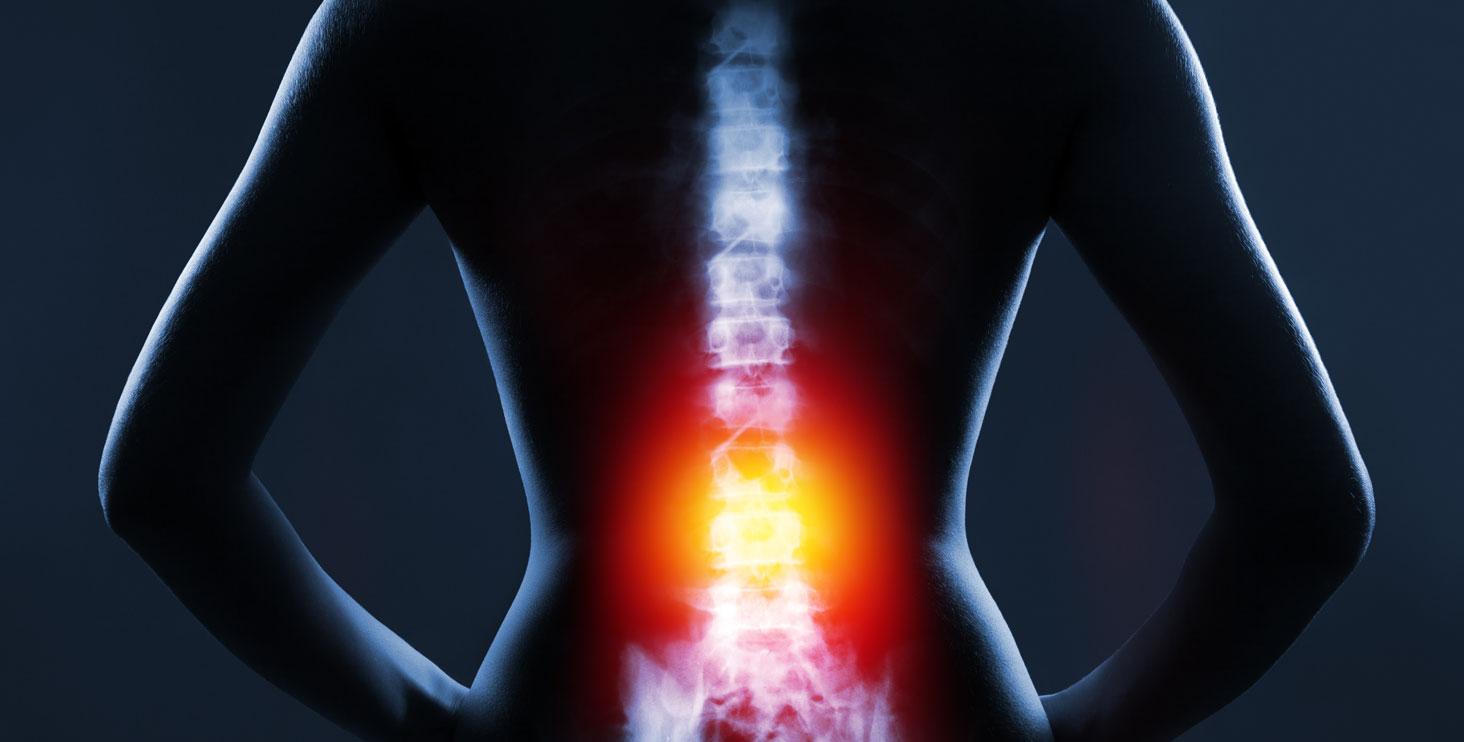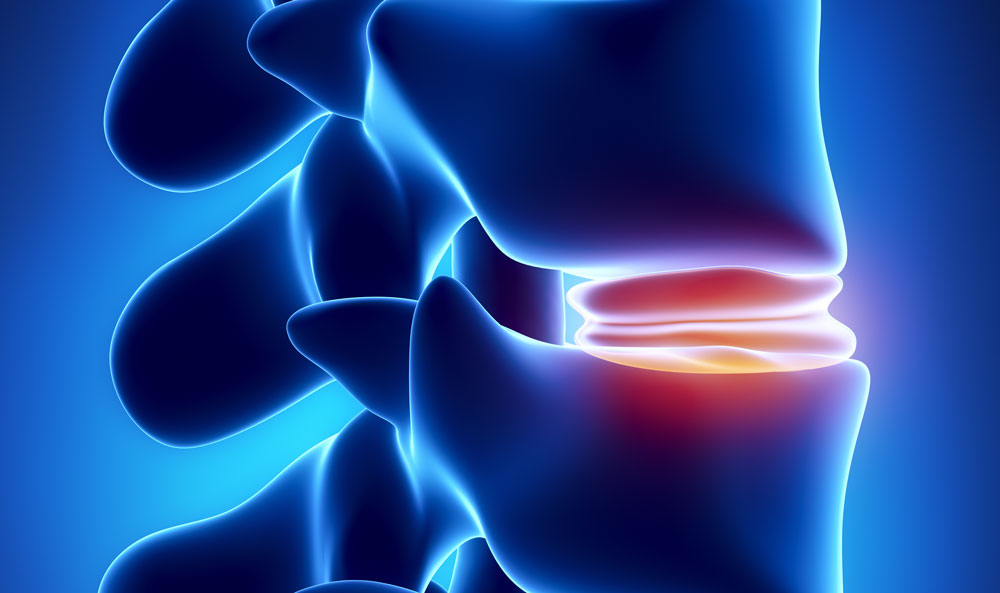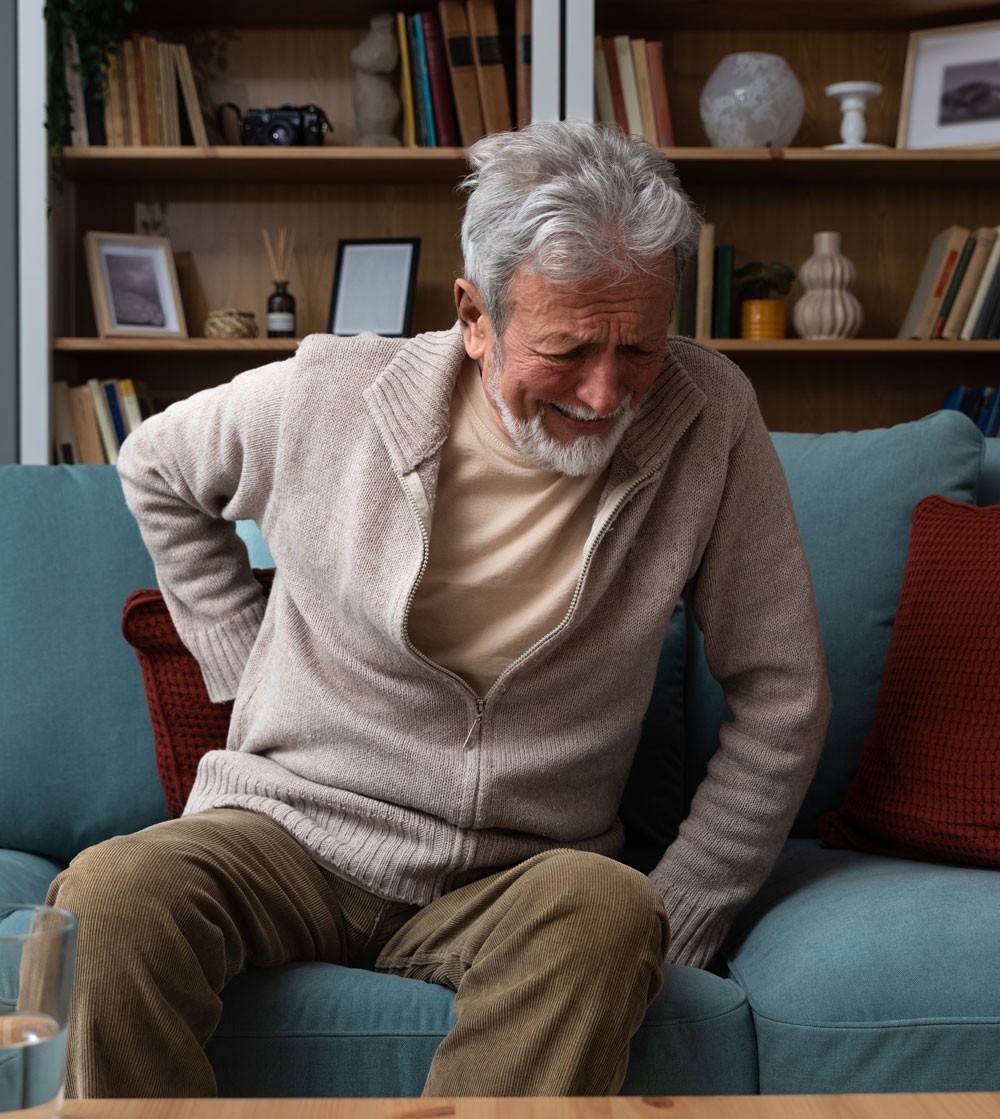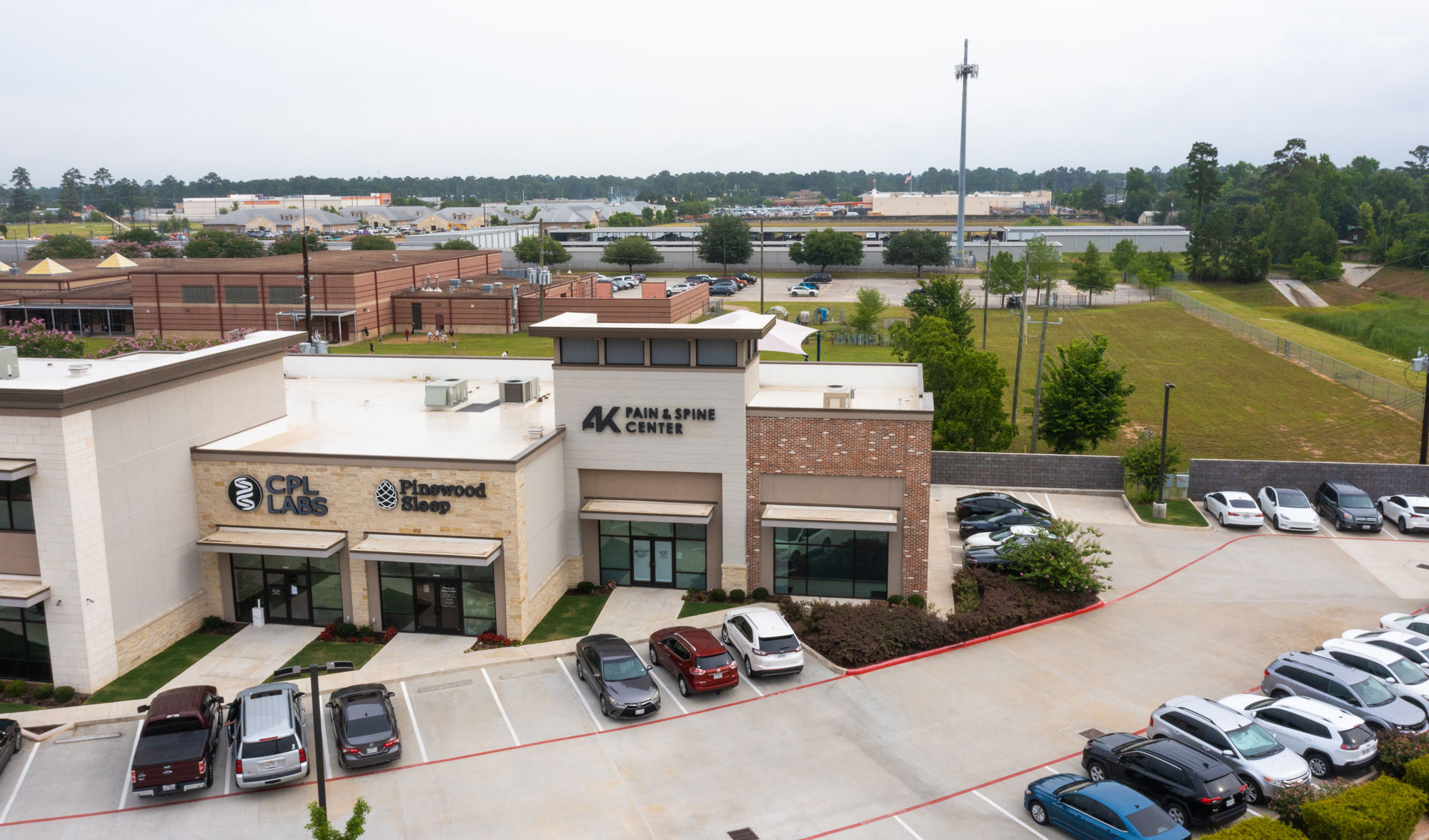Degenerative Disc Disease

Common Symptoms &
Non-Surgical Pain Treatments
Have you ever felt a sharp pain in your lower back while bending down to pick something up? Unfortunately, back pain is a common problem almost all adults experience at some point. However, if the pain becomes excessive, it could indicate a more severe ailment. Degenerative disc disease is a chronic condition that causes unwanted discomfort as it progresses. Here is everything you need about degenerative disc disease and our recommended non-surgical treatment options.
Degenerative Disc Disease

Common Symptoms & Non-Surgical Pain Treatments
Have you ever felt a sharp pain in your lower back while bending down to pick something up? Unfortunately, back pain is a common problem almost all adults experience at some point. However, if the pain becomes excessive, it could indicate a more severe ailment. Degenerative disc disease is a chronic condition that causes unwanted discomfort as it progresses. Here is everything you need about degenerative disc disease and our recommended non-surgical treatment options.

What Are Spinal Discs?
It’s important to understand what spinal discs are and how they function before exploring the topic of degenerative disc disease. The spine holds 23 intervertebral discs, also known as spinal discs. Each one has a thick outer layer of cartilage called the annulus fibrosus and a soft center known as the nucleus pulposus. These discs sit between our spinal vertebrae and cushion the bones by absorbing excess shock and providing flexibility and support. Hence, spinal discs are essential building blocks of the spine, and their condition is critical to our bodies’ mobility and support.
What is Degenerative Disc Disease?
Our spinal discs go through lots of wear and tear as we age. People with healthy, functioning spines use it almost every second of every day. As a result, we inadvertently put a lot of stress on the spinal discs. While some degeneration is normal, those who experience it in excess are highly susceptible to developing degenerative disc disease.
This condition occurs when the spinal discs dry out, tear, crack, or wear down, which leads to excessive pain. Degenerative disc disease is not life-threatening, but it is often considered chronic. However, there are various available treatment options for those who need support.
Who is Most At-Risk for
Developing Degenerative Disc Disease?
Degenerative disc disease can affect anyone, but it is more prevalent in individuals aged 40 and above. Since the condition worsens over time, its symptoms become more noticeable as we age and the wear and tear increases. Nevertheless, certain lifestyle choices or medical conditions can increase the risk of developing it at an earlier age.
Those who struggle with obesity are more likely to have this condition because of the increased pressure on their spines. Additionally, those who participate in sports or have labor-intensive jobs may also develop it because they use their spinal discs at a heightened rate. Women are also more biologically prone to this disease. We recommend seeking treatment if you notice its symptoms and fall into the following categories. One of the best ways to treat it is to catch it early so you can take corrective actions before it becomes a more significant issue.

What are the Common Symptoms of Degenerative Disc Disease?
Keep an eye out for the following warning signs if you think you may have degenerative disc disease:
- Occasional Severe Pain
Those who struggle with degenerative disc disease will feel occasional severe pain in their lower back. While this feeling will come and go, these sharp pains may make it difficult to stand, walk, or enjoy regular activities. - Pain When Bending, Twisting, or Lifting
Since our spinal discs absorb excess shock as we move, those with degenerative disc disease may notice pain when adjusting their bodies. Bending down, twisting your back, or lifting items should not typically cause pain. However, you may have degenerative disc disease if you feel a sharp discomfort when doing so. - Numbness or Tingling
Many patients may also experience numbness or tingling. This sensation often occurs in the lower back, hips, and sometimes down into the legs. This symptom is a result of nerve pain surrounding the spine. While the numbness and tingling should subside with time, we recommend seeking treatment as soon as you notice the uncomfortable sensation.
How to Treat Degenerative Disc Disease
Thankfully, there are various treatment options available to those struggling. While many feel tempted to visit their doctor and seek expensive treatments and medications, AK Pain & Spine is here to offer a second opinion. We provide non-surgical treatments for those who want to find relief without surgery. Here are a few ways we treat degenerative disc disease in Houston, Texas:
- Steroid Injections
Have you tried physical therapy and want to avoid surgery? We often use steroid injections as a first step to alleviate degenerative disc disease. During this non-invasive procedure, we will inject medicine directly into the treatment area. This treatment is more targeted than oral medication, making it more effective and providing instantaneous results. - Spinal Cord Stimulation
We also offer a treatment called Spinal Cord Stimulation. This involves delivering a mild electrical stimulation to the affected area, which helps decrease nerve activity and reduce the number of pain signals sent to the brain. In doing so, your mobility will increase, and you can enjoy your favorite activities without having to deal with nagging back pain. - Minuteman Procedure
For those who have tried other treatments or surgery but are still experiencing pain, the Minuteman Procedure is an excellent option. Our team inserts the Minuteman device into your spine to stabilize your movements. Many of our patients find great relief from its added support and can easily return to their favorite activities without experiencing pain. Plus, it is an outpatient treatment that only requires a 1-inch incision, making it significantly less invasive than other surgical treatments.
If you have any questions about the options listed above, feel free to contact our team. We will gladly provide detailed explanations for each treatment to ensure you select the most suitable course of action for managing your pain.
Degenerative Disc Disease
Treatment in Houston, Texas

If you’re suffering from this condition, please know that you do not have to live your life in pain. You have options, and our team at AK Pain & Spine wants to provide our support. Don’t resort to unnecessary surgeries. Click the button to schedule your consultation. We even offer same-day appointments because we believe nobody in pain should wait. We cannot wait to help you return to an active, healthy lifestyle!
